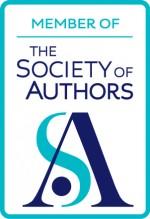The other day I came across an article in the winter edition of The Author, the trade journal for members of the Society of Authors. As always, their magazine is full of useful stuff for writers, but one particular feature stood out, and it’s been niggling away at me ever since.
In the article, ‘Something of the Night’, the multi-talented writer and critic Bonnie Greer writes about her realisation that there are two kinds of books: ‘day’ books and ‘night’ books. (Greer is a playwright, novelist, writer of memoir and poetry, as well as a regular panelist on BBC2’s Newsnight Review, where you can bet she always has something interesting and relevant to say.)
‘Day’ or ‘Night’ writing – what’s the difference?
Okay, let me clarify that the terms ‘day’ and ‘night’ have nothing to do with the time of day that you do most of your writing. It matters not whether you’re a night-owl writer, or if you’re up with the lark, or (like me) a bit of a ‘grabber-inbetween’ of any scribbling opportunity, day or night.
Rather, the mark of a ‘night’ book, Greer argues, is that it’s driven by a ‘daemon’, or at the very least a form of interiority where:
“…the reader is a kind of intruder. This isn’t to say that the reader is ignored, not wanted, discouraged; just that there is something private happening, something that the reader herself cannot understand and is learning … as she writes.” p134
I liked this. It made sense instantly. To illustrate her point, Greer compares Oscar Wilde’s children’s stories (his ‘day’ books) with The Picture of Dorian Grey (the ‘night’ book). And Robert Louis Stephenson’s Treasure Island (his ‘day’ book) with Strange Case of Doctor Jekyll and Mr Hyde, (a ‘night’ book if ever there was one).
I get your drift Ms Greer
In my own mind, I see ‘day’ books as safer, more commercial, written to please readers. They’re good little children – they sit still in church, eat their greens without a fuss. People love them because they do what’s expected.
Whereas ‘night’ books are bolder, liable to controversy, less controllable. They dig their heels in, refuse to get up off the supermarket floor. Other people look on with disdain. But you love them just as much, in spite of the runaround they give you. And maybe that makes the personal rewards of writing the ‘night’ book so much sweeter.
I’m not sure yet. I’m still thinking about it. Maybe the trick is to do both kinds of writing, like the versatile Ms. Greer.
So how about you? How far does this distinction between ‘day’ and ‘night’ books make sense for you as a writer? I’d love to hear your thoughts on your past and present writing projects.
Fiona Joseph




10 Comments
The examples are interesting. I read Oscar Wilde’s stories as a child, and found them very upsetting. Not having re-read them I can’t say whether my adult perspective is any different, but I remember them being full of death and the unhappy plight of the outsider. They might be his “day” works but they were far from sunny…
Greer’s distinction looks quite serviceable; it describes the differences I might note between, for instance, Alan Garner’s The Owl Service (day) and his later book Red Shift (night). At the moment, I’m aiming for day – I’m still learning the principles of storytelling, so no matter how tempting night writing might be, I don’t feel I’ve earned the right to play fast and loose with my readers. This makes me wonder if night stories might be more suited to the mature writer (mature in their craft rather than their age necessarily). Are there any first works that succeed in the “night” mould?
wow – great blog fiona – what an interesting concept to ponder. Day and Night, Sun and Moon, Male and Female, Exterior and Interior, Exposed and Hidden…
Are day books about physical adventures and night about mental ones? But the two cannot always be easily separated. Do we have dusk and dawn books I wonder, the transition from one state to another? Perhaps I’m taking it too far now!
Hi Kate, thanks for dropping by with some good points. If you get chance to revisit Wilde’s stories it’ll be interesting to get your reaction as an adult.
Also, it seems that many writers do seem to make that transition from ‘day’ to ‘night’ books over the course of their writing careers, or indeed – but less commonly I think – from ‘night’ to ‘day’. Some, like Ruth Rendell/Barbara Vine, alternate with each book.
Emma, I like all your different distinctions! In fact on my previous blog post there’s been a great debate about the differences between ‘male’ and ‘female’ writing. You might find it interesting:
http://fionajoseph.dev/?p=1010
Fiona x
I love Bonnie Greer. But after pondering this for a few days I still don’t feel that this theory really works for me, personally. I never write anything that’s intentionally commercial or lighthearted or very easy. All of my writing comes from whatever midnight there is inside me. But I’m not sure if I really understand what she means here. I feel like there’s a distinction to be made about how books are written and how they are received. Something that seems like a ‘day’ book might come from an author’s very darkest night, and vice versa.
Hi Georgina – some more interesting thoughts. I agree with you that the ‘day’ and ‘night’ labels are sometimes in the eye of the reader. (I wrote a story once that I considered quite a dark tale, only to have someone say what a “nice little story” it was!)
In my own writing projects I can make a distinction between work that has, for example, been commissioned (and is of necessity more outward-looking/’day’) compared to work that is self-generated and originates from within. However I find any piece of writing I do an (almost) intolerable struggle with words!
I enjoy reading your comments. Thanks for all your contributions so far. Fiona x
Wow! That was very helpful.
I review books for my website, but only if I like them. I had trouble articulating exactly what wasn’t working for me in a book a writer submitted for review. I thought it was because I’m partial to historical novels and her novel was contemporary, but that didn’t feel right because I love oodles of contemporary books.
You’ve helped me understand that I’m partial to “night” books. Thank you.
Thank you Erika. Glad it’s a useful distinction for you too. Fiona x
Been thinking about this as I try to write my (ahem!) novel… it certainly resonates more with me as I try to steer my writing towards the intuitive and symbolic, and away from the more technical, plodding approach. Both are necessary, of course, but I do see how if I went the more technical way, I’d have a ‘lighter’ novel at the end of it. Well, that’s if I ever make it to the end! If I do, I expect I won’t care what kind of novel it is – I’ll just be happy it’s over!
Hi Georgina. Yes, it’s an interesting thing – following the intuition pathway whilst still applying the more technical aspects of writing. I’m sure you will resolve it somehow! Good luck with your novel. Look forward to hearing all about it. Fiona x